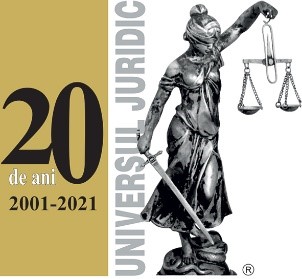Consideraţii privind nulitatea persoanei juridice în doctrină şi jurisprudenţă
sevastiancercel[at]drept.ucv.ro
Cuvinte cheie:
nullity of the legal person, causes of nullity, legal regime, effects of nullityRezumat
The Civil Code regulates the legal person and lays down the general framework for associative or non associative forms of organisation for carrying out a specific economic, social cultural, artistic, religious or other activity. By regulating the “nullity of the legal person” in a separate section (Articles 196 199) of the chapter on the “establishment of the legal person” (Articles 194 204), the legislator provides a means of guaranteeing the principle of legality and respect for morality and public order in matters relating to the legal person.
The establishment of nullity for failure to comply with the conditions for setting up a legal person acts as a deterrent against the temptation for founders or associates to ignore or infringe the legal provisions in force when the legal person was set up. Infringement of the applicable legal provisions will activate, where appropriate, the repressive function of nullity, so that “the legal person ceases without retroactive effect and goes into liquidation” [art. 198 para. (1) Civil Code]. Those involved have the possibility of fulfilling the legal conditions, initially infringed for various reasons, “until the closure of the proceedings before the first court”
[Article 197 para. (2)]. With a specific legal regime and legal effects that take account of the complexity of the legal situation, the nullity of the legal person governed by the Civil Code proposes appropriate legislative solutions to maintain a balance between the various interests present in this matter.
Keywords: nullity of the legal person; causes of nullity; legal regime; effects of nullity; acts concluded with third parties.
Publicat
Versiuni
- 21-04-2023 (2)
- 13-09-2022 (1)









